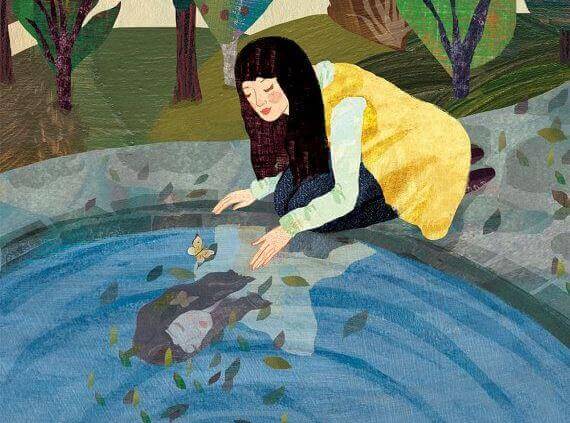I Need to Love Myself Before I Fall in Love with You

I learned how to fall in love, but no one taught me that I need to love myself first.
People say we all have a soulmate who will make us happy and complete, but no one told me that I need to love myself before I can fall in love with someone else.
All of us have been deceived when it comes to infatuation, which surprisingly, can’t happen if we don’t learn to love ourselves first.
You might have the same question: How can you fall in love with someone if you don’t first love yourself?
When you value yourself, you realize that you can be happy without someone by your side, and you see that life doesn’t start and end with your partner.
You Can’t Live Without Yourself
Do you think you’re not able to live without that person you profess to hold dear? Do you think that, if you tried to go on with your life without that person, the world would fall apart?
Something that you’re failing to realize is the fact that the only person you can’t live without is you.

Humans tend to have an almost disturbing lack of self-esteem that leads them to take refuge in the love that comes from someone else. This, rather than being something positive, can lead to problems related to emotional dependency.
Loving someone deeply can be a beautiful thing. But you know fully well that the person you need to love first is yourself.
If you can’t cherish yourself or trust yourself, how can you cherish and trust others?
You certainly feel lonely or afraid at times. You’re outside everything you’ve been taught and you’re learning to love as you truly should.
Start with yourself first. Let’s be clear: the only person you can’t live without is yourself.
The First Step Is to Love Yourself
Maybe you’re wondering how it’s possible to fall in love with yourself. No one has taught you how to do this, and honestly, it can be very difficult to achieve, but it’s not impossible. Therefore, we hope the tips we give you today will help you value yourself more.
What’s important here is you.

-
Don’t Be Afraid of Loneliness
It’s easy to have an unfounded fear of being alone because you’ve been taught that solitude is a sign of unhappiness. If you can’t be happy when you’re alone, however, you have a problem.
Is it true that you can’t be happy alone, or is that just what others have made you believe?
Take advantage of your solitude to devote your time entirely to yourself. You can learn a lot: your self-esteem will increase, you’ll trust in yourself, you’ll love yourself unconditionally…
Don’t waste your solitude because that’s where you’ll find yourself, and—as you’ve already learned—that’s where you’ll learn to appreciate yourself.
-
Overcome Appearances
Loving yourself is ignoring appearances. Something as superficial as concern about what you look like to others can lead to problems with insecurity. If you know who you are and what you want, you won’t care what anyone else says.
-
Take Care of Your Friends
Sometimes, when you’re part of a couple, it’s easy to ignore your friends, but that’s something you should never do. Couples will come and go, but friends, if you care for them, will be there forever.
Never value love over a friendship. It’s not worth it.
You have friends who won’t fail you and whom you can trust. These are indeed the people you should appreciate.

-
Don’t Give Up Everything for Other People
Do not go without reading: The Importance of Learning to Be Selfish
Do everything for yourself, but not for others. You’re the one who really matters, and you need to move forward to achieve your goals while trusting, loving, valuing, and respecting yourself.
Never give up everything for someone else because only you will suffer.
Given all of this, you might think you’re being a selfish person. Maybe you don’t see that you’re actually being generous—all you need is some time for yourself.
Whenever you lose sight of this, repeat these words: “I’ll love myself first.” Truly love yourself if you want to achieve happiness.
All cited sources were thoroughly reviewed by our team to ensure their quality, reliability, currency, and validity. The bibliography of this article was considered reliable and of academic or scientific accuracy.
- Hyatt, C. S., Sleep, C. E., Lamkin, J., Maples-Keller, J. L., Sedikides, C., Campbell, W. K., & Miller, J. D. (2018). Narcissism and self-esteem: A nomological network analysis. PloS One, 13(8), e0201088. https://doi.org/10.1371/journal.pone.0201088
- Kiviruusu, O., Berg, N., Huurre, T., Aro, H., Marttunen, M., & Haukkala, A. (2016). Interpersonal Conflicts and Development of Self-Esteem from Adolescence to Mid-Adulthood. A 26-Year Follow-Up. PloS One, 11(10), e0164942. https://doi.org/10.1371/journal.pone.0164942
- Showers, C. J., Ditzfeld, C. P., & Zeigler-Hill, V. (2015). Self-Concept Structure and the Quality of Self-Knowledge. Journal of Personality, 83(5), 535–551. https://doi.org/10.1111/jopy.12130
This text is provided for informational purposes only and does not replace consultation with a professional. If in doubt, consult your specialist.








